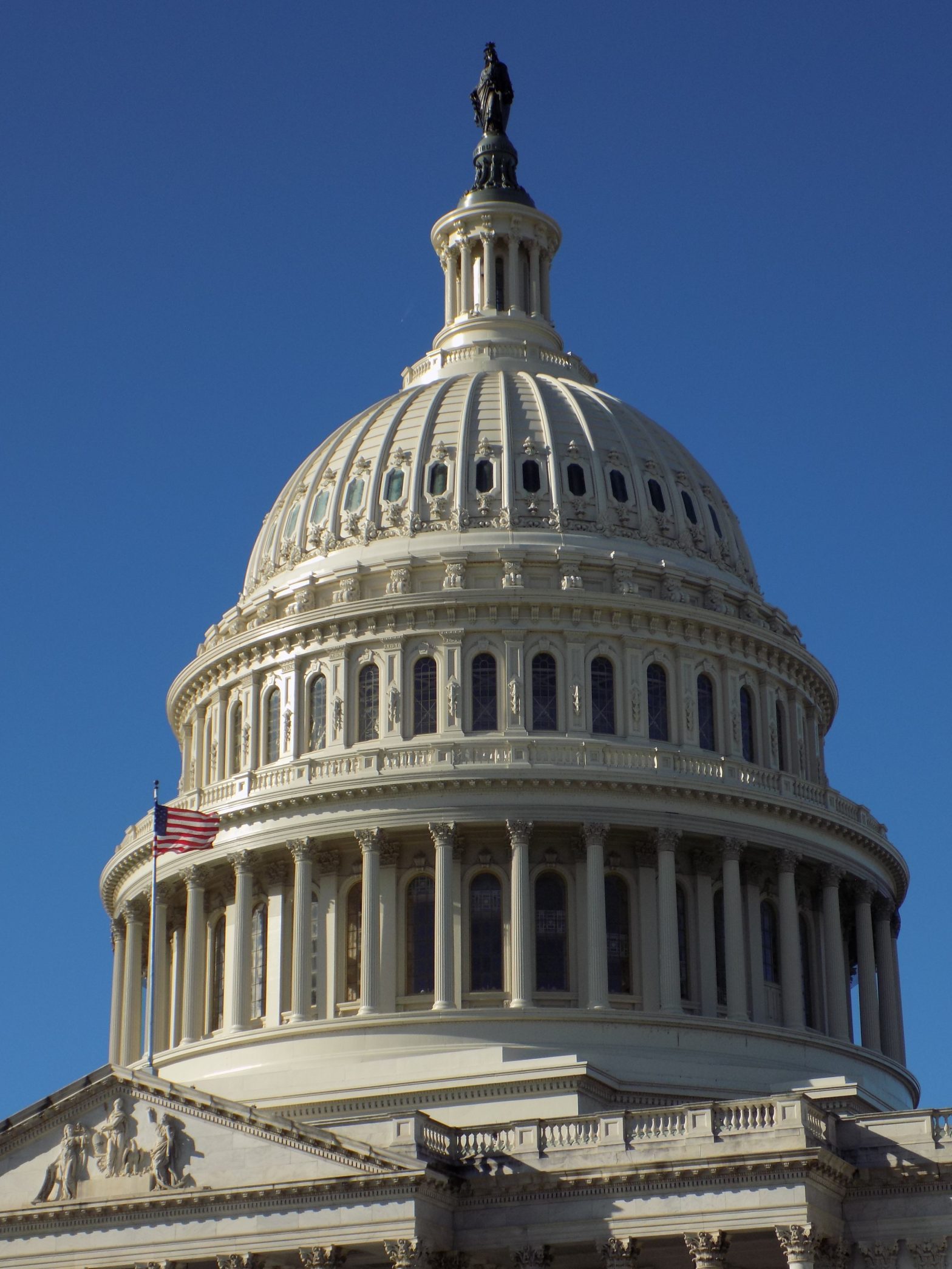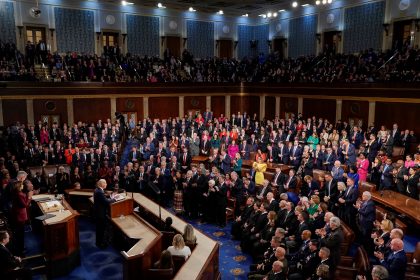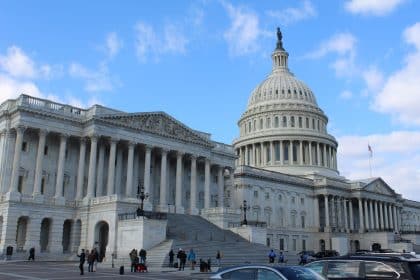Reps Push Child Tax Credit Expansion But Watchdog Says ‘Not So Fast’

WASHINGTON – House Democrats renewed their push to permanently expand and “improve” the Child Tax Credit, but a prominent fiscal watchdog warns that while the proposal deserves consideration, it must be fully paid for under the House PAYGO rules and not simply rolled into the next COVID relief bill as an added, unpaid for expenditure.
Democratic Reps. Suzan DelBene, of Washington, Rosa DeLauro, of Connecticut, and Ritchie Torres, of New York, reintroduced the American Family Act Monday afternoon.
Currently, President Biden’s American Rescue Plan includes one year of an expanded Child Tax Credit modeled after the American Family Act.
The Act would provide up to $300 per-month, per-child for children under 6 years of age and $250 per-month, per-child for children 6-17, increasing the credit for all children.
The bill also, for the first time, makes the credit fully refundable and extends the CTC to the United States Territories.
“The Child Tax Credit is a proven tool that successfully lifts families out of poverty and shrinks class divides but it still leaves behind one-third of all children who are in families who earn too little to get the full credit,” DelBene said. “Those left behind disproportionately include families led by single mothers, rural families, and one-half of Black and Hispanic children.
“The American Family Act would correct this issue by giving lower-income families access to the full credit,” she continued. “It would also increase the benefit amount and provide payments monthly.
“This is a smart way to deliver relief during the pandemic to families struggling to make ends meet but also a good long-term policy that can lift millions out of poverty,” she added.
DeLauro said, “The inclusion of an expansion and improvement of the Child Tax Credit in coronavirus rescue legislation moving in the House this week is groundbreaking, but we cannot stop there.
“We must use this moment to pass the American Family Act and permanently expand and improve the child tax credit by increasing the benefit to families and providing payments monthly. Children and families must be able to count on this benefit long after the end of this pandemic,” she added.
According to estimates from Columbia University, the Child Tax Credit now lifts approximately one-sixth of all previously poor children above the poverty line.
The bill is estimated to cut child poverty by nearly 45%, cut Asian American and Pacific Islander child poverty by 37.0%, cut Black child poverty by 52.4%, cut Hispanic child poverty by 45.4%, cut Native American child poverty by 61.5%, and cut child poverty in Washington state by 40.3%. In addition to drastically cutting child poverty, the American Family Act provides middle class families with additional help as well.
Specifically, the legislation would:
- Increase the Maximum Child Tax Credit and Pay Benefits Monthly for All Children under 17. The bill would expand the CTC to $250 per month ($3,000 per year) for children 6-17 and $300 per month ($3,600 per year) for children under 6, up from the current maximum of $2,000 per year.
- Make Credit Fully Refundable. The bill would make the CTC fully refundable, meaning that all low-income families would receive the full credit for each child. The current CTC only begins to phase-in after a taxpayer has earned $2,500 of income and at a rate of 15 cents for every dollar of additional income. In addition, only $1,400 of the $2,000 credit is refundable.
- Benefit the Middle Class. The bill would provide a tax credit for all individuals with children who earn less than $150,000 per year and all married couples with children who earn less than $200,000 per year.
- Index the Credit for Inflation. The bill would index the credit to inflation (rounding to the nearest $50) to preserve the value of the credit going forward. The current CTC is not indexed for inflation.
But for all the bill promises, Maya MacGuineas, president of the Committee for a Responsible Federal Budget, says its more important now than ever that lawmakers use their emergency borrowing authority to meet pandemic-related need, not just to enact long-sought after policy priorities.
“House PAYGO rules make clear that new spending increases and tax cuts not related to the COVID response or climate change must be paid for,” MacGuineas said in a written statement. “Expanding the child tax credit clearly doesn’t qualify under either of these exemptions, as it is clearly meant as a permanent policy and is in many ways duplicative with the proposed $2,000 per child recovery rebates.
“Replacing the current $2,000 child tax credit with a more broadly available $3,000 to $3,600 credit would help address the disadvantages that kids face in the federal budget. But we shouldn’t borrow from our kids in order to pay for their care when there are plenty of offsets available,” she said.
Overall, according to the Committee for a Responsible Federal Budget, the current Child Tax Credit plan being floated by the Democrats will cost over $100 billion per year and more than $1 trillion over a decade if made permanent.
“Senator Mitt Romney’s recent proposal to consolidate existing support for children and workers and repeal regressive tax breaks represents one possible package of offsets,” MacGuineas said. “The $5.8 trillion of tax increases and budget savings proposed by President Biden during the campaign also offers many alternatives. Offsets could also be phased in to avoid imposing tax increases during a pandemic or disrupting a fragile recovery.
“This is a worthy policy aimed at achieving a worthy goal. That’s no reason to throw budget discipline out the window. Borrowing for the pandemic isn’t an excuse for unrelated tax cuts, nor is it a reason to enact permanent policies that aren’t properly financed,” she added.
The American Family Act was introduced with 154 original House cosponsors indicating a broad show of support across the Democratic Caucus.
The full text of the bill is here.
























